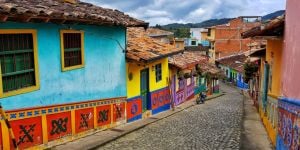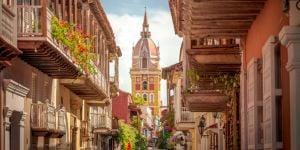Newly Arriving Expats: Should They Buy a Home in Colombia?
Last activity 17 December 2021 by cccmedia
Subscribe to the topic
Post new topic
Articles to help you in your expat project in Colombia
 Accommodation in Colombia
Accommodation in ColombiaAs long as you know what to expect, finding and securing accommodation in Colombia isn't too difficult. Demand ...
 How to drive in Colombia
How to drive in ColombiaAny foreigner entering Colombia on a tourist visa is permitted to drive with the valid driver licence from their ...
 Leisure activities in Colombia
Leisure activities in ColombiaBoth visitors and those who stay long term in Colombia will have no shortage of things to do. Colombia's rich ...
 Phones and internet in Colombia
Phones and internet in ColombiaKeeping in touch with friends and family is a top concern no matter where you are living. In order to stay in ...
 The healthcare system in Colombia
The healthcare system in ColombiaHealthcare is a primary concern for anyone moving abroad and future expats will be happy to learn about the ...
 The Working Holiday Visa for Colombia
The Working Holiday Visa for ColombiaWhat makes Colombia unique is that it is one of the most diverse countries in the world, bordered by two oceans ...
 I Speak Colombian ? Words And Phrases That Will Help You Better Understand Colombia
I Speak Colombian ? Words And Phrases That Will Help You Better Understand ColombiaProbably the best thing about speaking Spanish in Colombia is that you can don’t have to really learn the ...
 Childcare, family activities and education in Colombia
Childcare, family activities and education in ColombiaFamily is extremely important to Colombians and many expats find it a great place to raise children. Colombia ...



